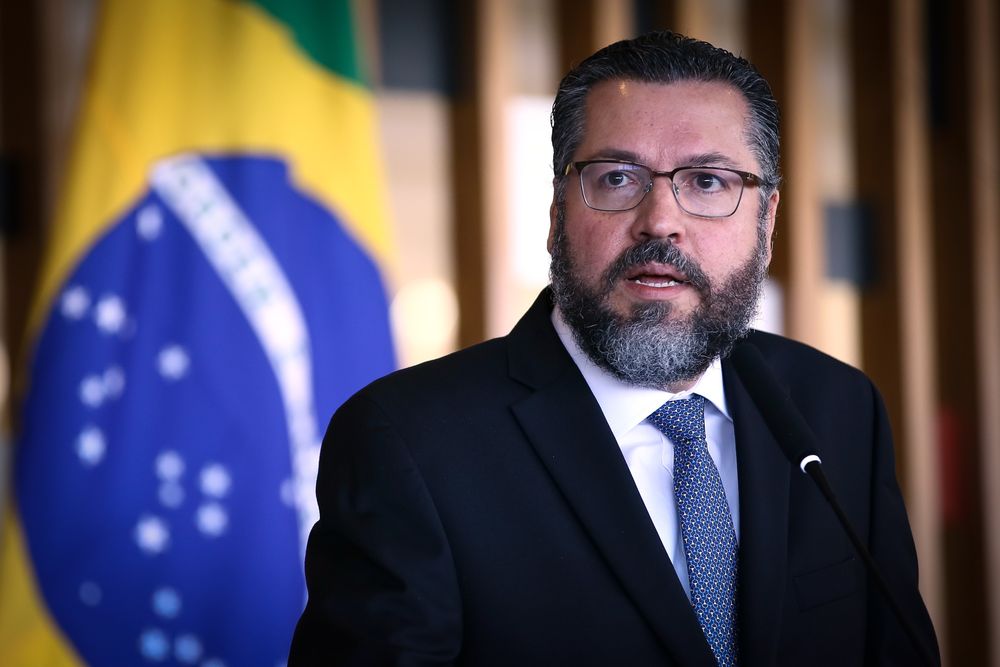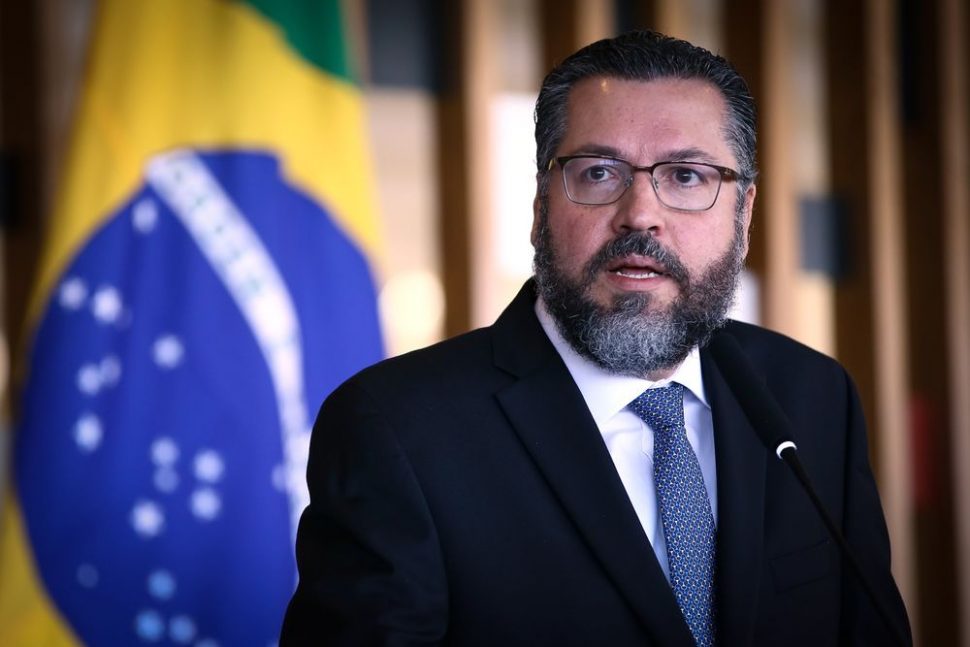PARIS, (Reuters) – Venezuelan President Nicolas Maduro will not be able to reverse the democratic transition that is taking place in his country, but the military will also need to support that change, Brazil’s foreign minister said today.
Opposition leader Juan Guaido called on the military to change sides last month, but only a handful of soldiers heeded his April 30 call. Maduro’s government has launched a crackdown on opposition lawmakers allegedly linked to the attempt.
“The process that is in place since January … is irreversible with all the international support for a democratic transition. There’s no way back to the Maduro regime staying in power indefinitely,” Ernesto Araujo told Reuters in Paris.
President Jair Bolsonaro’s right-wing government has joined more than 50 other nations in recognising Guaido as the legitimate leader of Venezuela.

“The question today is the arrangements necessary for the Venezuelan military to adhere to the legitimate government. We feel it is necessary for the military to adhere but the shape it will take is up to the Venezuelans,” Araujo said, speaking in English.
Despite U.S. sanctions, Venezuela’s military top brass have largely ignored entreaties from the opposition and Washington to turn against Maduro. A little over 1,000 troops have defected, mostly to Colombia and Brazil.
Araujo, who was in Paris for an OECD meeting as Brasilia closes in on joining the organisation, said he didn’t believe foreign intervention in Venezuela was necessary and that economic and diplomatic efforts were isolating Maduro.
“The forces inside Venezuela are gaining momentum against the Maduro regime and the growing perception is that it’s only a question of time,” he said.
Along with Colombia, Brazil backed an opposition initiative to deliver U.S. humanitarian aid to its neighbour in February, but Maduro closed the only formal border crossing.
Because of the frontier closure, hundreds of Venezuelans daily were bribing National Guard officials as they tried to make their way into Brazil along indigenous trails that cross the sun-baked savannah. The border has since reopened.
Venezuela’s economic meltdown has left roughly a quarter of its 30 million people in need of humanitarian assistance, the United Nations says.
The attempt to deliver aid “failed because the aid didn’t get through, but politically it showed that it is a regime that will stop at nothing,” Araujo said.

